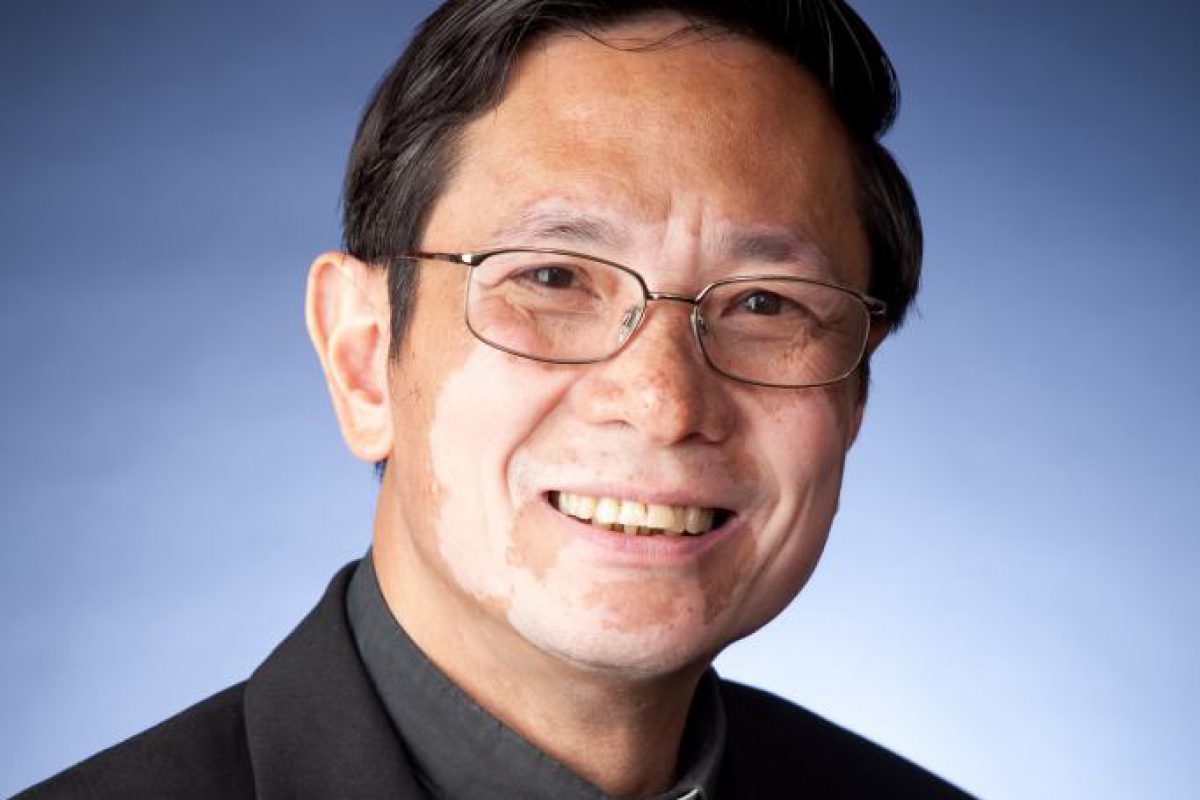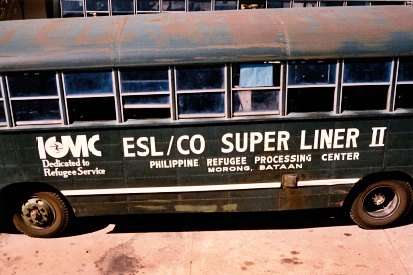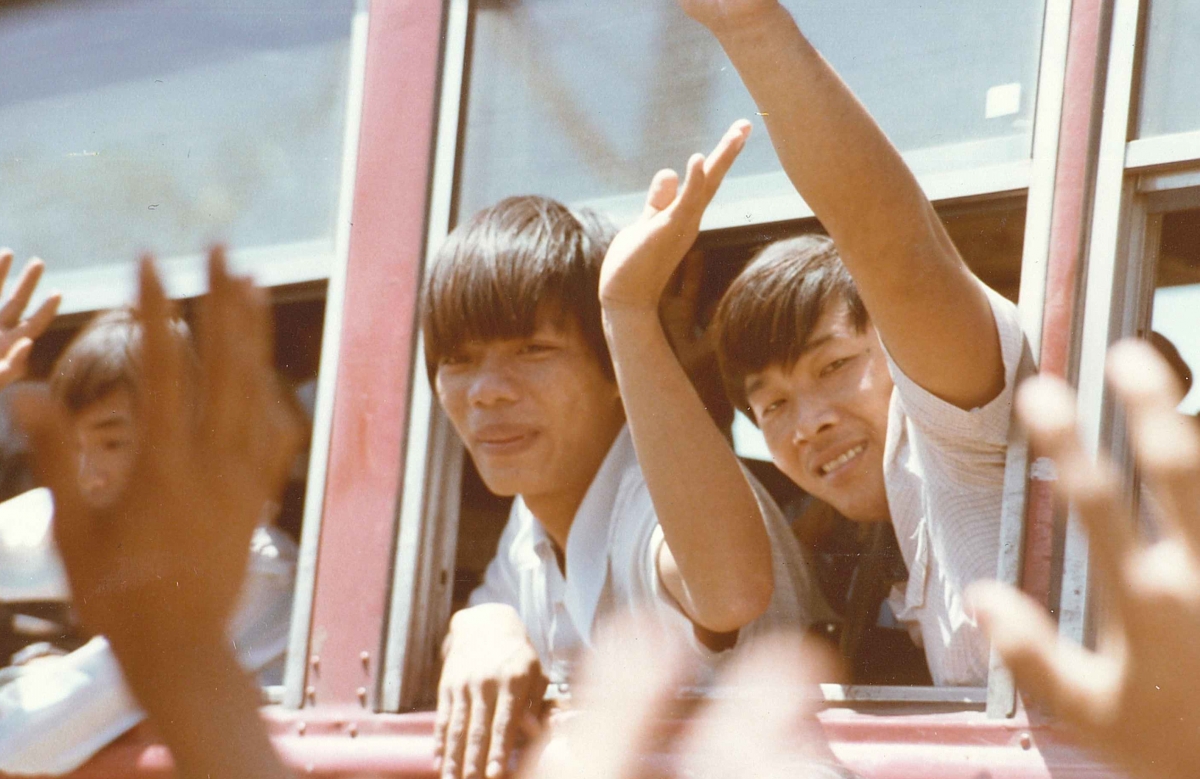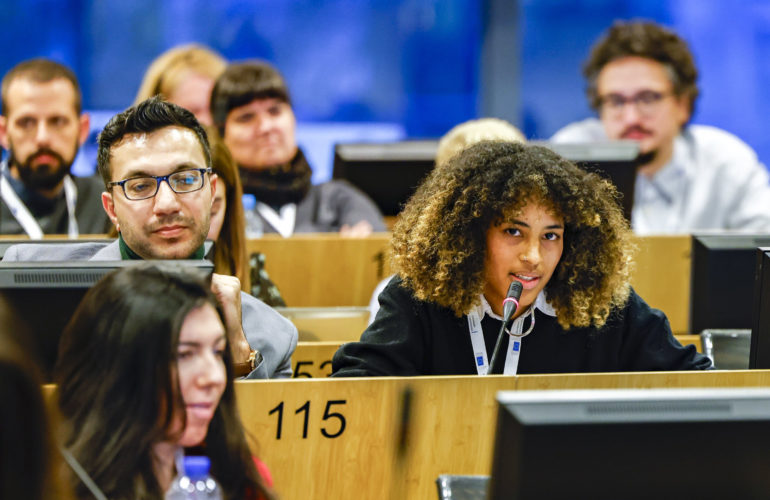A Former Refugee Himself, a Newly Appointed Bishop Encourages Americans to Open Their Hearts to Migrants and Refugees

Fr Nguyen knows first-hand what it is like being a refugee. As he prepares to be ordained as a bishop on 19 December, Fr Nguyen pledges to continue preaching to open people’s hearts and minds to refugees’ struggles and dreams.
In early October, Pope Francis named Fr Thanh Thai Nguyen as an auxiliary bishop of Orange County, Southern California.
A Vietnamese American serving in Jacksonville, Florida, Bishop-elect Nguyen is one of the “boat people” who fled Vietnam after the war in the late 1970s and was then resettled in the United States.
The newly appointed bishop-elect is the second Vietnamese American who has been called to ministry as a bishop in in the U.S. With 1.3 million Catholics and hosting the nation’s largest Vietnamese community, the Diocese of Orange is the 10th-largest in the country.
Life as a refugee
The second-oldest of 11 siblings, the young Nguyen entered a Vietnamese seminary as a teenager, but his studies came to a halt when the communist government took over in 1975. “The war had a great impact on my life and the life of many Vietnamese people,” says Bishop-elect Nguyen.
Forced to flee their home due to escalating violence and persecution, his family embarked on a small boat and found themselves adrift in the sea with neither food nor water for 18 days.
“We experienced storms the first four days,” he recalls. “The boat’s motor stopped working, so we threw it overboard. We experienced hunger and thirst. With God’s grace, it rained three times and each time, we had enough water for one cup each.”
By day 17, the 26 exhausted passengers let the boat follow its own drift. But the next day, they saw mountains and “rowed the boat from 8 a.m. until 5 p.m.” to reach the shore.

In the Philippines, the young Nguyen lived in refugee camps for ten months, first on Tara, a small deserted island where life was tough.
“Refugees relied on a ship coming from Manila once a month to bring food and lumber to build the camp. But there was no port, so the ship docked far away from the shore and the men had to go out and carry in the cargo. We worked very hard.”
Lack of drinking water on the island caused many people to fall sick, including young Nguyen, who was then transferred to a camp in Mandaluyong, near Manila. There, life wasn’t much easier.
The Bishop-elect recalls “helping out the refugees who came from the islands.” He also recalls Sister Pascale Triu, a Catholic nun “who provided refugees with clothing, shoes and a fair amount of money to get a taxi to the airport for departure to a third country.”
More than three million people are estimated to have been displaced by the Vietnam war, of which approximately two million were resettled in the USA until the early 1990s.
The International Catholic Migration Commission (ICMC) employed over a thousand staff members in South East Asia at the time. They processed refugee resettlement applications to the USA, worked on orderly departure plans, and provided English language and Cultural Orientation classes.
Listening with open hearts and minds
The young Nguyen was resettled in the United States in mid-1980, initially to Beaumont, Texas. He was later taken in by a friend in Hartford, Connecticut, where he attended night language classes. He then went on to serve as a bilingual teacher in a Hartford public school for three years before re-entering seminary.
Following studies at the Jesuits’ Weston School of Theology in Boston, he was ordained in 1991. Three years later, he began serving in the diocese of St. Augustine, Florida, ministering to the growing Vietnamese community in that state.
“Vietnamese refugees are very industrious, they work very hard,” says the Bishop-elect. “They bring their family values with them and try to keep them strong in the United States.”
During those years, Bishop-elect Nguyen was instrumental in strengthening the local community by celebrating its cultural diversity through parish events.
“Fr Nguyen knows the plight of refugees, and understands their efforts to seek a safe home and support their families,” says Bishop Felipe Estévez of the Diocese of St. Augustine. “He has a genuine gift when it comes to ministering to people of diverse cultures.”

“I would recommend that host communities listen to refugees’ stories with open hearts and open minds,” says Bishop-elect Nguyen. “I believe that they would find out what refugees and migrants go through, learn about their struggles to study another language and adjust to a new culture. Refugees’ lives are filled with a lot of courage and heroic acts.”
During his short time in the diocese of Orange, he has already encountered many culturally diverse parishes that have welcomed refugees and migrants, among others, Hispanics, Vietnamese, Filipinos and Koreans.
“The priests here have worked hard to integrate migrants and refugees,” the Bishop-elect says. “They have the Mass readings in different languages, as well as the songs. They hold receptions at which the food served is mixed with ethnic food and people seem to enjoy that.”
Bishop-elect Nguyen will continue to foster integration in his new diocese, urging all people of good faith to treat one another as brothers and sisters. “I would like to find creative ways to continue bringing people together so that they can listen to each others’ stories and understand cultural differences.”
Commenting on recent developments in U.S. refugee policy which have brought about a significant reduction of the refugee admission quota, the Bishop-elect says he hopes politicians “put listening to the story of a human being into their decision-making.”
For him, politicians should “have compassion, and listen to the stories of migrants and refugees with an open mind and open heart.” He would then expect that policies “help refugees and migrants to have the opportunity to live as human beings, as was the case for me.”
But for this to happen, he says, “we need to preach the Good News—continue to let them know that we are brothers and sisters in Christ—and preach not only with words but also with our actions.”
Bishop-elect Nguyen acknowledges that integration is not an easy process, but he is confident that communities “can grow into integrating any kind of different culture.”
“There will be not perfect integration; it’s always an ongoing process,” he says. The key is “listening, which means that we need to create opportunities for an ongoing dialogue.”
With an open heart and an open mind.


